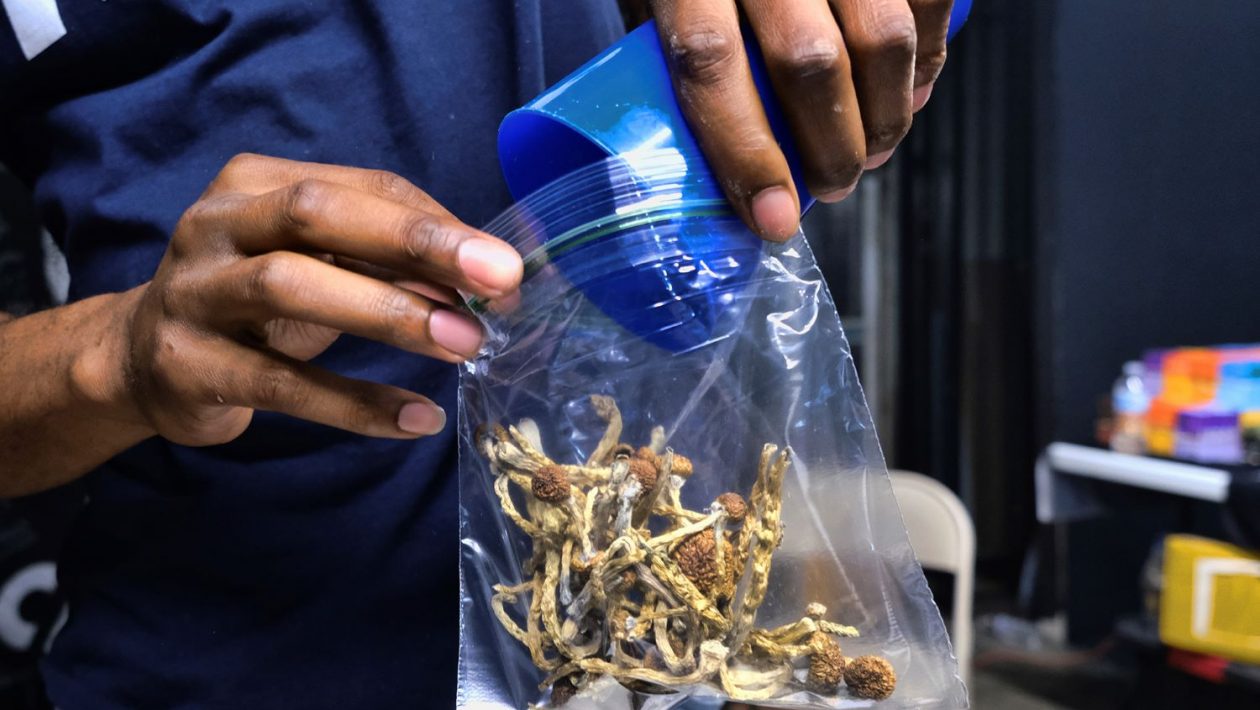Corazon, the recovery coach, says the Cascadia Psychedelic Community, which she founded, is one in a network of more than 100 local psychedelic societies stretching from San Francisco to Norway, Britain, Spain, Holland, Portugal, Hungary, the Czech Republic “and even Nashville.” At an international conference last year, representatives of those societies traded notes on decriminalization, legalization and intracommunity challenges, including efforts to guard against sexual abusers operating as therapists.
Closer to home, the Port Townsend Psychedelic Society, which seeks to decriminalize all “entheogenic plants and fungi” throughout Jefferson County, has already made its case to the local health board, city council, mayor, police chief and county commission. “So far, everyone has been curious, open-minded and helpful,” says Erin Reading, a member of the campaign.
All in all, says Corazon, “we’re happy to be getting a second or third or 11th chance, whichever it is,” to realize the full medical and social potential of psychedelics.
The first chance came serendipitously, in 1943, when a Swiss chemist named Albert Hoffmann accidentally absorbed a bit of lysergic acid diethylamide, a prospective respiratory stimulant he had developed, and experienced a psychedelic trip. Hoffmann went on to synthesize psilocin, psilocybin and other hallucinogens and to hail LSD, his original “problem child,” as a valuable aid to meditation and psychotherapy.
In the 1950s and early ’60s, psychotherapists reported bracing, even “miraculous” results using LSD to treat alcoholism, depression and anxiety and obsessive-compulsive disorders. Even Bill Wilson (“Bill W.”), the co-founder of Alcoholics Anonymous, tried it and hailed its potential; Cary Grant announced his 60 sessions with LSD had made him “a happy man.” Henry Luce, the publisher of Time and Life magazines, and his wife, the conservative icon Clare Booth Luce, were enthusiastic psychedelic samplers and boosters. One of Luce’s headline writers coined the term “magic mushrooms.”
Then, what Licata calls “bad marketing” — in the form of countercultural excess and the messianic antics of the psychedelic researcher-turned-showman Timothy Leary — “got in the way.”
Fantastic, sometimes fabricated tales of LSD-induced suicides and other horrors became media staples. President Richard Nixon, fearing (rightly) that chemically assisted mind expansion might encourage dissent and war resistance, declared the first War on Drugs. Drugs proved handy scapegoats and political cudgels — just as they would in the 1980s, when the Ronald Reagan and George H.W. Bush administrations rekindled the war. In the 1972 campaign, Nixon’s supporters falsely but successfully tarred Democrat George McGovern as the candidate of “acid, amnesty [for draft resisters] and abortion.”
And so psychedelics joined heroin and marijuana on the federal Schedule I list of drugs with “no currently accepted medical use in the United States, a lack of accepted safety for use under medical supervision, and a high potential for abuse.” Funding dried up and research died for nearly three decades. Studies restarted, quietly, in the late ’90s and have accelerated since. Better-controlled formal trials and extensive, if covert, treatment experience have supported the earlier findings.
The new John Hopkins center will explore psilocybin’s effectiveness at treating opioid addiction, Alzheimer’s disease, PTSD, chronic Lyme disease, anorexia, and alcohol use in people with major depression. MDMA (Ecstasy), an amphetamine derivative with effects resembling the classic psychedelics, has proven so effective at treating PTSD in early trials that FDA approval for general use is widely anticipated by 2021.
Contrary to what their Schedule I listing presumes, LSD and psilocybin have in seven decades shown virtually no addictive or fatal overdose potential (though they can trigger severe psychological effects in vulnerable individuals, especially in casual, unguided use). Now these drugs are getting another chance in the courts of politics and public opinion.
But is decriminalization even needed in the relatively liberal, tolerant venues like Seattle where it’s most likely to succeed?
